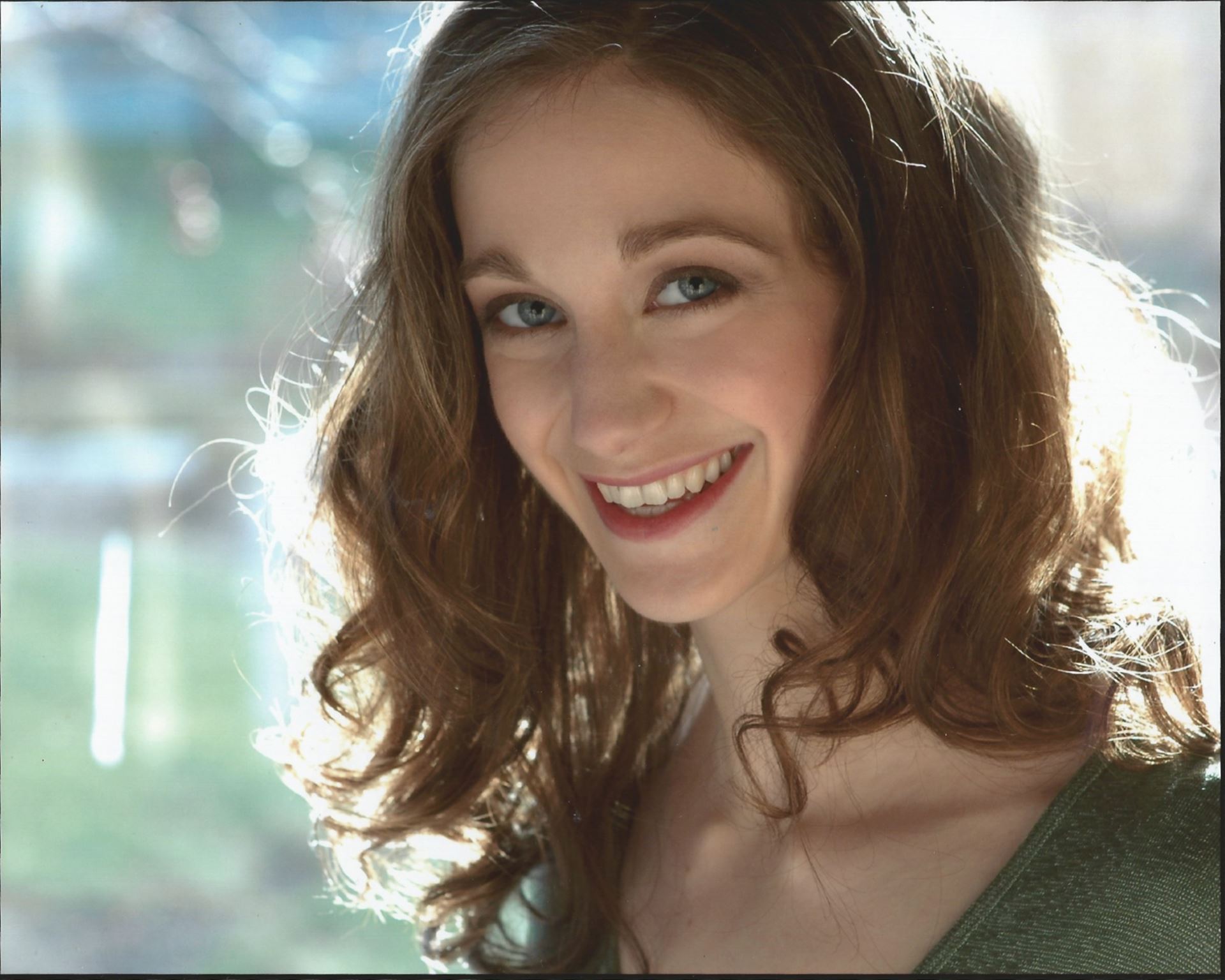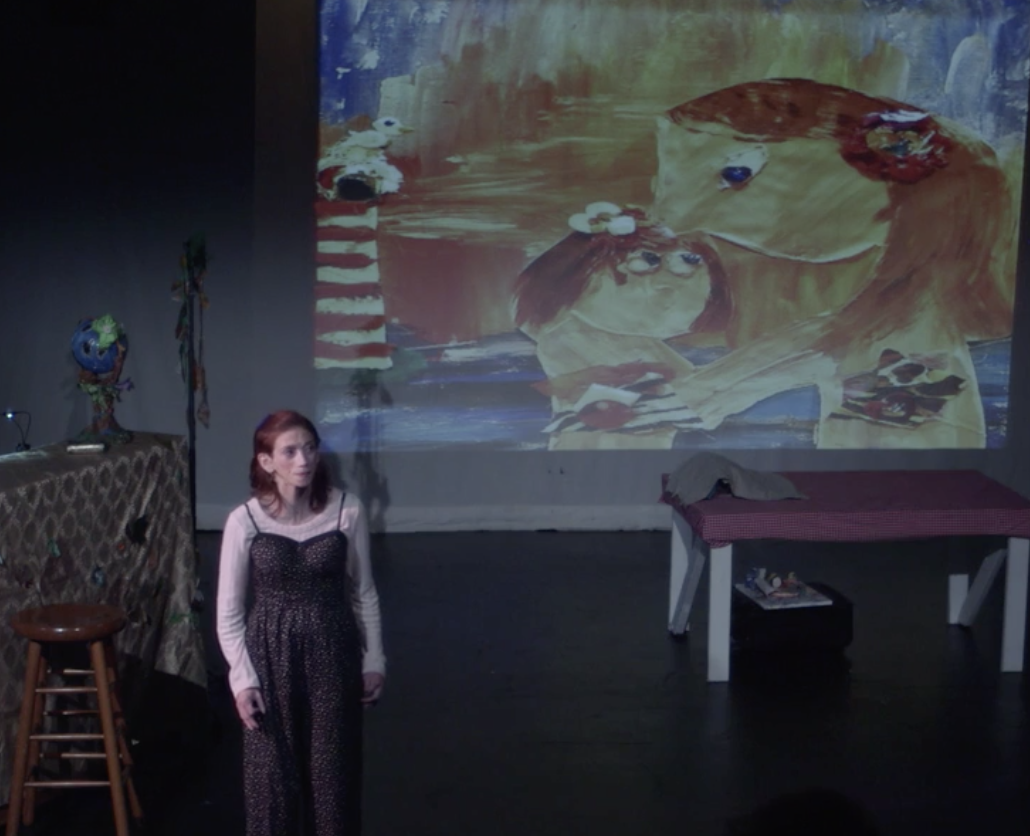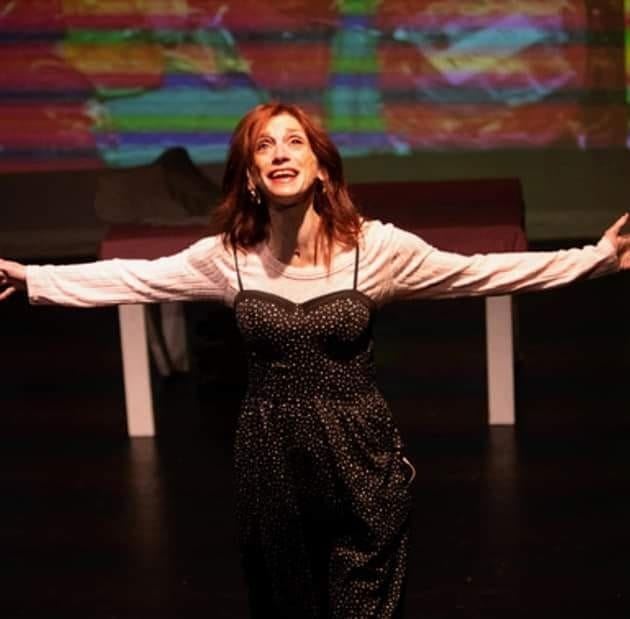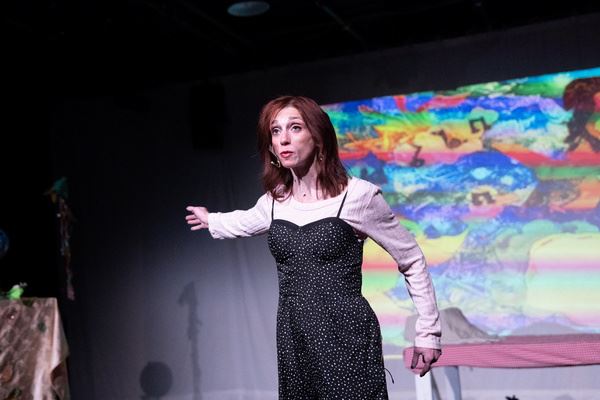Playwriting: From Lonely Art to Creating Community
by Amy Oestreicher

I strive to create plays to find the commonality as much as the distinctiveness, inherent in all of our “life detours” – finding that universality is what makes me “tick!” The community aspect of theatre has always been tremendously important to me. A month after being discharged from the Columbia Presbyterian Surgical ICU, I joined a local theatre’s production of Oliver, to once again immerse myself experience of being part of a community ensemble, and creating theatre together - a driving passion that anchored my childhood.
When I was a child, the arts were my passion and identity. Later, when my traumas occurred, they became my lifeline. I grew up all my life in theatre. For me, singing and acting were ways I could connect with the world around me. When I took a deep, grounded breath from my gut, I sang what my heart longed to express. I found comfort in the words of my favorite composers. I read scripts like they were novels. I would play with my playbills from various shows I had seen like they were my Barbie dolls. Through theatre, I had a place in this world. I could make believe by inserting myself into characters from every era, situation and mindset, while still expressing my own individuality. Theatre was my language I could access to truly know who I was, no matter what was going on in my life, and I was singing, dancing, acting and creating from the time I could talk. I lived my life believing I would carve a beautiful career out for myself in the world of musical theatre, be on Broadway, and conquer the world.

My community experience as a playwright would come years later through an unexpected detour, which started as purposeful isolation. For years, I was seeking to find that universality within the confines of my bedroom, barricaded from the outside world, while I waited six years for my digestive system to be reconstructed. My creativity was spawned from an abnormal period of medical isolation. Only after I regained my health, and ability to digest food, could I re-experience the magic that comes from working with others. Playwriting granted me creative ownership, launching me back into society as a storyteller, rather than a victim, and storytellers thrive in community. I realized that creating theatre could facilitate healing for both the artist and audience, as they engage with the story. Theatre was a “great equalizer” which created a common language, and bridged divides.
Because of my coma, I ended up attending college as a 25-year-old, and just graduated at age 30. My senior year at Hampshire College, I had the opportunity to apply to the Eugene O’Neill Theater Center’s National Theatre Institute, where I studied devising performance, playwriting, stagecraft, puppetry, composition, and a range of skills that were new to me. But the greatest new exposure was devising theatre with other artists, from a range of backgrounds, passions and perspectives to create theatre based in found objects, reimagined texts, collaboratively generated themes and other group-formulated prompts, given a steady focus through a shared love of creativity and theatremaking.

Studying through the National Theater Institute, forming comraderies and connections through this guiding passion which aligned all of us, made me feel more connected to myself, my world, and theatre’s possibilities. Our company told stories through mixed media art, movement, music, and text to make reimagined meaning from our own personal detours.
Being part of this community was an extraordinary opportunity to bring ideas to fruition, generate new ones, and collaborate in a risk-taking, supportive environment. I’ve lived and breathed theatre as my own life force through the ups and downs of my traumas– but this air was richer and much easier breathed when with others! Becoming a part of NTI, where I could develop this passion in the company of like-minded artists, was the greatest gift. Never had I felt so part of the world.

Now, I’m passionate about creating theatre that keeps this channel of communication open, challenging ideas, and cultivating compassion. I’ve learned that, just as healing, and cultivating this compassion, cannot take place in a vacuum, neither can true theatre, and that I could greatly benefit from the chance to both give and receive feedback on new work, as I did at National Theater Institute. It became a privilege to share and hear excerpts of work with peers, and to learn from the O’Neill staff and guest artists. With no end to my overflow of ideas, the months spent at the prolific theatre-making hub provided the time and support to not only cement them, but fuse them with the ideas of others, creating a final theatrical product that none of us could have anticipated. Coming away from this experience, I gained connection, collaborative tools to further focus my vision, and the diversity to add perspective to my artistic intentions.
Within this group of passionate young artists, I felt comfortable taking the risks needed, to discover that theatre must be lived and worked through, not lying dormant on a laptop. I witnessed firsthand how theatre can challenge ideas, create compassion and bring out the stories that unite us all. Through the transformative power of writing and theatre, we feel heard, gain clarity and can problem-solve. As creators and audience members choose to create and interact with the space and one another through theatre, they engage in a vital conversation on how we view obstacles.
I learned that, just as Patty sings in my play, LEFTOVERS, “The Only Time That I’m Real is When I’m Singing,” the only time that I’m real, is when I am creating in the presence of others.
Spending several months at the Eugene O ‘Neill Center was one of the first times since my coma that I had the privilege of experiencing the joy of collaboration and the connection that comes from group devising. Now, I’m eager for to maintain that sense of community spirit in my work. I’ve always felt that creativity and connection were vital survival strategies, and frankly, the only way to live a really fulfilling life. But having the privilege of meeting so many amazing people – the students, staff, and every person I came into contact with inspired me to learn so many things about myself, and know the most talented, generous, warm-hearted people.

I got to be surrounded by this unfathomable creative energy I’ve never felt with such intensity. At the O’Neill, we did everything, literally all day long and sometimes through the night – playwriting, composing, directing, acting, singing, devising, sharing, moving, feeling, and creating some more. It’s amazing how collaboration, and connecting with the hearts, minds, souls, and passions of others can make you feel like you’ll never run out of creativity, energy, stimulation or time. My favorite part of being at NTI was participating in a theatre lab every week. Every week, we would be assigned an excerpt from a play or musical, new, old, or in between. Although eventually our schedule became too jam-packed to keep it going, upon arriving, I tried to journal as much as I could.
Here’s what I wrote the first day:
“This is going to be amazing. It took nearly three hours to introduce everyone, because everyone is so amazing and wonderful to get to know. These were passionate, connected, present, truthful stories of why theatre was so important to all of these people – and all for extremely diverse reasons. Who knew this would be a spiritual experience. The grounds are so gorgeous here, and we’re surrounded by a quaint, New England town. I see the pianos hooked up to composition software, and I immediately get roused with that spark in me that wants to try composing again...and everything else! I feel home, with a family I’ve always sensed, somehow, but have never actually experienced.”
Collaboration forced me to surrender my preconceived notions of what I felt my play “should be about.” Community brought clarity to my work, and let others into a play that started out as “dense fruitcake.” I learned that I didn’t have to always be the “lone survivor” that made it through unimaginable hardship. It was okay to collaborate – in theatre and in life. This community experience ended as the greatest lesson of all: Theatre grants us the clear space to spark new ideas with others.

Amy Oestreicher is a PTSD peer-to-peer specialist, artist, author, writer for Huffington Post, speaker for TEDx and RAINN, health advocate, survivor, award-winning actress, and playwright, sharing the lessons learned from trauma through her writing, mixed media art, performance and inspirational speaking. As the creator of "Gutless & Grateful," her BroadwayWorld-nominated one-woman autobiographical musical, she's toured theatres nationwide, along with a program combining mental health advocacy, sexual assault awareness and Broadway Theatre for college campuses and international conferences.
https://www.amyoes.com/
![]() at the top of the post
at the top of the post![]() at the top of the post
at the top of the post